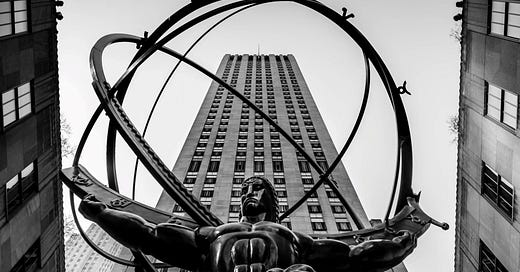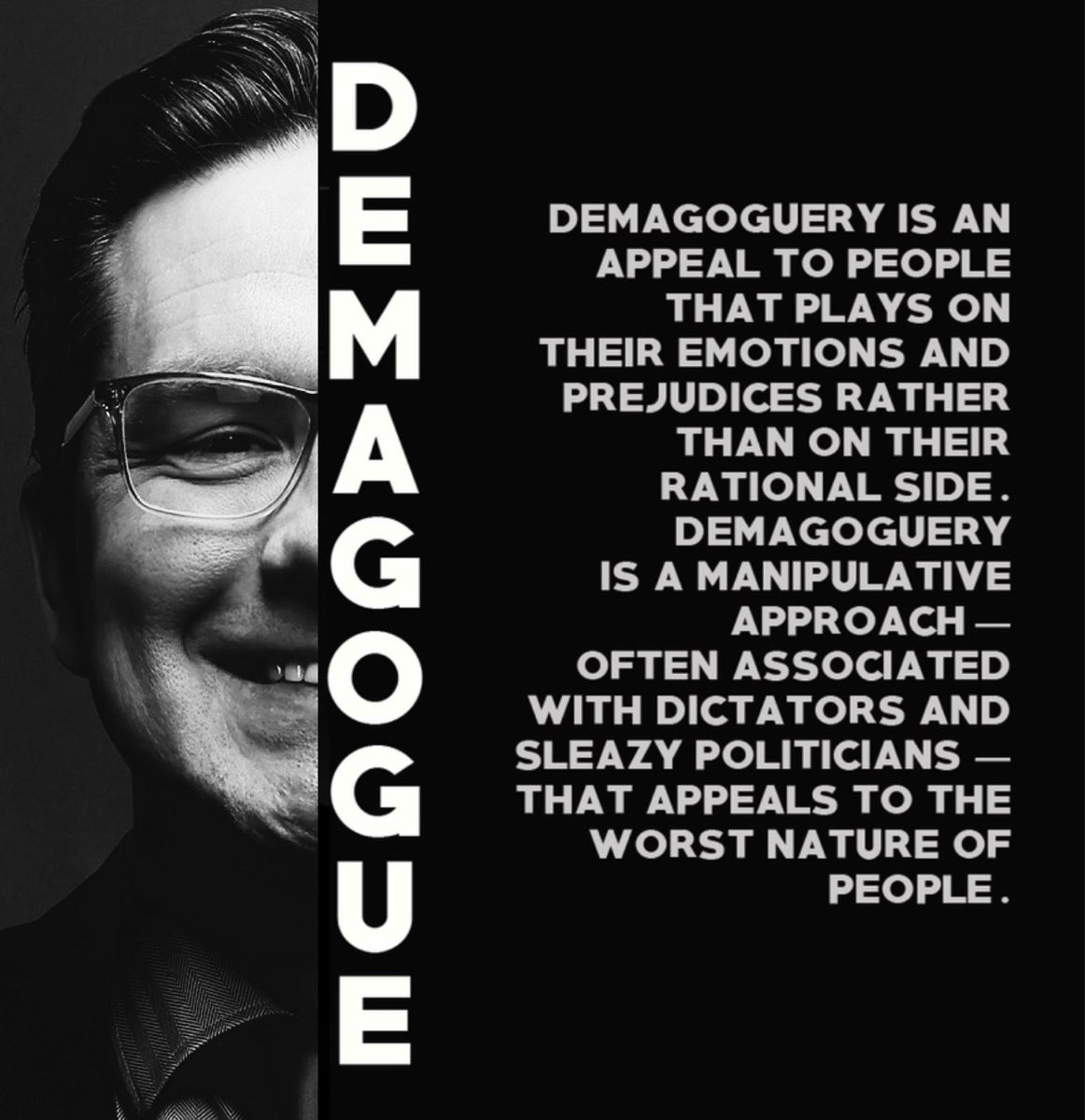Shadows of Democracy: The Machinery Behind Populist Power
Dear Fellow Canadians, Before You Vote, Take a Moment to Read This (Or Not)
I’m still mentally immersed in Jane Mayer’s Dark Money. As a mechanism design economist focused on funding structures and allocation models, my team and I work at the intersection of money, resource flows, and financial architecture. I advise the public and social sector and social enterprises, while also teaching practitioners and graduate students. Yet despite this deep engagement, Dark Money continues to unsettle me—and that, in itself, says a lot.
I can’t shake this book because it lays bare a fundamental constraint that economists like me must reckon with. No matter how rigorously we design funding mechanisms to advance the public good—especially for groups denied full equity and forced to settle for conditional inclusion—there are always counterforces. Forces like the Kochs, the Thiels, and their shadow networks, along with their babies like Poilievre, cloaked in pseudo-intellectual legitimacy. These forces aren’t incidental—they are built to resist equity and entrench inequality, by design.
This isn’t just a technical challenge. It’s a systemic one. And it’s a sobering reminder: the pursuit of a democratic and just system doesn’t end with smarter policy or better-designed mechanisms. It’s a sustained fight against entrenched power, ideological capture, and the machinery that bankrolls injustice.
A Call to Confront the Shadows of Democracy
Read this book—not only if you reside in the United States, where it should be mandatory reading (but of course it could never be), but wherever you are, and especially if you’re a Canadian citizen preparing to cast your vote. Mes chers/chères Canadiens/Canadiennes, before you cast your vote for Pierre Poilievre, do read this book.
The erosion of democratic norms detailed within its pages is not confined to America. What unfolds there today foreshadows the future of democracies everywhere. If this book is about anything, it’s about the insidious machinery dismantling democracy in plain sight, aided by demagogues.
One of the harshest truths it reveals is just how ineffectual mainstream liberal and centrist parties have become. On nearly every critical issue—voter suppression, electoral manipulation, the gutting of campaign finance laws, the criminalization of protests, and the unchecked growth of militarized security states—reactionary populist “conservative” forces have outmaneuvered, outfunded, and outmessaged their opponents.1 Worse, the failures of liberal parties are so consistent that they raise an unsettling question: is this incompetence, or complicity? The pattern is too familiar, too entrenched, to be accidental.
Critics often scoff at political outrage, insisting that reason must triumph over emotion in public discourse. But this book dispels that illusion. It exposes a reality many would rather ignore: you cannot “reason” with forces that see your existence, rights, and dignity as expendable. Calls for civility and compromise ring hollow when reactionary populist so-called conservatives are actively dismantling protections, gutting institutions, and weaponizing misinformation to consolidate power. As Mayer’s dissection of the Obama years illustrates, it was never about policy moderation—it was about total obstruction, even if it meant dragging the entire system down.
This is not a fair fight. The architects of dark money are not simply wealthy—they are among the richest individuals in history, united by a shared loathing for regulation, public accountability, and collective welfare. Their adversary? Any democratic safeguard—environmental protections, labor rights, basic public health measures—that interrupts their pursuit of unregulated profit.
They are the ideological heirs of Ayn Rand and Friedrich Hayek, clinging to the myth of absolute individual freedom above all else. Rand once reassured readers that her callous, greed-driven “heroes” were based on real people. Today, no such reassurance is needed. The ultra-wealthy power brokers profiled in this book are living proof that her dystopia has been actualized.
“Mr. Poilievre’s intellect was locked in as a teenager when he read the sociopathic rants of Ayn Rand. He was spending time at a right-wing think tank even then and got noted for his way with words. His partisanship became his primary value since he had no private-sector experience or professional expertise.”
— Mark Bourrie, from his book Ripper: The Making of Pierre Poilievre.
But these forces don’t just want wealth—they want control. Control of the narrative. Control of the institutions. Control of the future. They own major media platforms. They fund political campaigns. They shape legislation behind closed doors. And they do it with relentless precision. Their ambition knows no limits, and their tactics no scruples.
To believe they can be reasoned with is dangerously naïve. They manufacture misinformation, fund astroturf movements, and build entire ecosystems of deception. They thrive on chaos, using spectacle and outrage to distract the public while quietly dismantling democratic institutions, one by one.
This book compels us to confront a dangerous myth: that truth inevitably triumphs, that justice is the natural trajectory of history. But in a world where journalism has become a luxury, where media outlets serve at the pleasure of billionaire owners, the truth is easily buried under mountains of cash. When political sabotage becomes a governing strategy, even electoral victories for progressive movements are treated as temporary inconveniences—delays, not defeats.
At its core, Jane Mayer’s book is about the enemies of democracy—those who believe in unrestrained individualism and wield their immense wealth to enforce that vision. They are worshippers of unchecked freedom that disregards the public good. And with their vast fortunes, they play god with the lives of ordinary people.
If democracy is to endure, it must set firm boundaries on the influence of concentrated wealth. In the U.S., this means overturning Citizens United—a ruling that opened the floodgates for corporate dominance in politics. In Canada, it requires curbing the power of lobbyists and closing the revolving door between wealthy elites and the technocratic hopefuls cycling between government and corporate boardrooms.
At its core, this means confronting the growing sway of wealthy interest groups over public policy. It means shutting the regulatory loopholes that allow dark money to infiltrate elections and strengthening transparency laws to protect the integrity of democratic institutions.
Before Canadians embrace Pierre Poilievre’s populist right-wing “freedom” rhetoric, they should ask: who truly benefits from his vision of “freedom”? Because history shows us—again and again—that when power goes unchecked and regulation is gutted, it’s rarely the public that gains.
Jane Mayer’s Dark Money doesn’t offer comfort—it offers a warning. And if we care about democracy, it’s a warning we cannot afford to ignore.
Still skeptical? Let’s take a closer look at how it all works—and where it really comes from. You’ll notice that “freedom” is the favorite word of demagogues and right-wing ideologues—though their version of it rarely serves the public good.
Alors, pour a cup of tea and join me as we explore the darker underbelly of the dark money machine.
The intricate web of populist right-wing political influence didn’t emerge overnight.
It is the result of more than a century of deliberate, coordinated efforts by a small, ultra-wealthy elite determined to reshape the ideological and institutional landscape—to safeguard their fortunes and advance a worldview that serves their interests.
The Foundations of Power: Wealth and Ideology
In the late 19th and early 20th centuries, select families amassed fortunes of unprecedented scale. Many leveraged their financial power to promote a political ideology that championed minimal government intervention, reduced taxation, deregulation, and the preservation of private property. The belief that the government’s primary role is to protect wealth, not promote social welfare, became their rallying cry.
However, it was the second generation of these dynasties that solidified this movement. By the mid-20th century, heirs such as the Koch brothers began formalizing political strategies and building institutions that endure to this day.
The “Charity” Facade: Weaponized Philanthropy
Philanthropy, ostensibly charitable, became a vehicle for obscuring financial transactions and avoiding taxes while funding institutions aligned with a populist conservative agenda.2 The creation of trusts, private foundations, and donor-advised funds allowed the ultra-wealthy to shield assets, direct tax-free donations to their own causes, and gain public legitimacy while remaining anonymous. Here is how:
Secrecy: Concealing donor identities to obscure the flow of funds.
Institutional Development: Establishing think tanks, foundations, and university centers to legitimize and propagate populist conservative ideas.
Tax Avoidance: Using charitable giving as a tax shelter to pass wealth to heirs while fulfilling minimal legal donation requirements.
Astroturfing: Manufacturing the appearance of grassroots support through corporate-funded “citizen” organizations.
For example, Fred Koch used charitable lead trusts to avoid inheritance taxes, passing down a vast fortune while funneling donations into ideological causes. His sons, Charles and David Koch, continued to use this method, establishing massive private foundations that funded initiatives to weaken regulations and spread pro-market propaganda.
The Koch Dynasty: From Oil to Ideology
Fred Koch, a founding member of the ultra-right-wing John Birch Society, passed down not only immense wealth but also an extremist worldview to his sons. The strategies were meticulous and multifaceted:
Intellectual Infrastructure: Koch invested in fringe libertarian schools of thought that cast the free market as the key to human freedom. He funded institutions like the Freedom School, which employed Holocaust deniers and revisionist historians who glorified the Gilded Age and minimized the harms of slavery.
Academic Beachheads: Koch poured millions into university programs to create “beachheads” for populist conservative ideology. These private centers within universities allowed him to influence hiring and research agendas without the constraints of academic peer review.
Key Institution: George Mason University, home to the Koch-funded Mercatus Center, became known as “a lobbying group disguised as an academic program.” By 2015, the Koch Foundation was funding pro-business, anti-tax, and anti-regulation programs at over 300 American universities.
Law and Economics Movement: With funding from the Olin Foundation, Koch-backed initiatives reshaped legal education. The “Law and Economics” movement encouraged courts to prioritize economic impact over fairness and justice, embedding pro-corporate frameworks in judicial reasoning.
Judicial Influence: The Kochs hosted expense-paid seminars at luxury resorts to influence judges. By the 1990s, 40% of federal judges had attended these events.
Scaife, Olin, and Bradley: A Counter-Academy of Populist Conservatism
Richard Scaife, heir to the Mellon fortune, used his philanthropic trusts to fund conservative think tanks and media, helping establish the Heritage Foundation and support the American Enterprise Institute to rival liberal academia. John M. Olin, a chemical magnate facing environmental litigation, directed his wealth to oppose regulation, with the Olin Foundation investing in university programs that nurtured conservative scholars.
Michael S. Joyce, head of the Bradley Foundation, expanded conservative philanthropy’s influence on public policy. Backed by funds from industrialists Lynde and Harry Bradley, the foundation promoted conservative intellectuals, think tanks, and legal foundations aligned with free-market ideals.
Key strategies of the conservative counter-academy:
Funding Conservative Policy Experiments: The Bradley Foundation was instrumental in pioneering school voucher programs, starting with Milwaukee. This policy was framed as giving parents more choices but served as a strategic tool to weaken public education and shift funding toward private and religious institutions.
Judicial Influence and Legal Strategy: Bradley provided significant funding to the Federalist Society, helping to shape the judiciary by nurturing a pipeline of conservative legal scholars and judges. This played a major role in shifting the legal landscape toward deregulation and corporate-friendly rulings.
Shaping Public Opinion: Bradley funded media outlets and policy centers that produced books, research, and policy papers advocating for conservative reforms in taxation, social policy, and welfare. They targeted public broadcasting and influential publications to amplify their reach.
Undermining Labor Unions: The foundation invested heavily in anti-union initiatives, including funding research and lobbying efforts to pass right-to-work laws, which eroded collective bargaining rights and weakened labor protections across multiple states. Well, ahem, Anti-Union Lobby Groups are Endorsing Pierre Poilievre’s Conservatives.
Key tactics across these populist conservative philanthropic efforts include:
Subtlety and Control: The Olin and Bradley Foundations funded programs selectively, likening their curated scholars to a “fine wine collection.” Scholars were encouraged to write books, bypassing the peer review process of academic journals.
Parallel Institutions: Rather than engaging with existing academic institutions, these foundations sought to build parallel conservative institutions, ensuring their ideas had legitimacy without the need for rigorous academic scrutiny.
The result is a powerful network of academics, judges, and public intellectuals who disseminate pro-market ideas under the guise of neutral scholarship.
The “Kochtopus”: A Vast Political Network
The Koch brothers’ influence expanded through a network of interconnected organizations, dubbed the “Kochtopus,” designed to influence politics at every level. This network funneled billions into shaping public policy, often through shell corporations and tax-exempt nonprofits:
Citizens for a Sound Economy (CSE): Established as a supposedly grassroots organization, CSE pushed for privatization and deregulation. It later evolved into Americans for Prosperity, a primary driver of the Tea Party movement.
DonorsTrust: Known as the “dark-money ATM,” DonorsTrust allowed anonymous donations to conservative causes, shielding the identities of donors.
The Manhattan Institute: A Case Study in Populist Influence
The Manhattan Institute for Policy Research serves as a pivotal example of how populist conservative think tanks have significantly influenced and continue to shape public policy and discourse. Established in 1977 by Anthony Fisher, the institute became a prominent centre for advocating for free markets and reforming policies.
Funding Sources: The Manhattan Institute was heavily financed by conservative philanthropists, including the Koch brothers and Richard Mellon Scaife. Their support ensured the institute’s alignment with pro-business and deregulatory ideologies.
Policy Advocacy: The institute influenced urban policy, notably supporting “broken windows” policing. This controversial approach to law enforcement posited that cracking down on minor offences, such as vandalism and fare evasion, would prevent more serious crimes. This policy disproportionately targeted low-income and minority communities, fuelling mass incarceration and police aggression. Mayer highlights how this framework was marketed as a neutral public safety strategy but, in practice, served to uphold systemic inequality.
Tax-Exempt Status: Like other think tanks examined in Dark Money, the Manhattan Institute used its nonprofit status to obscure its political motivations while influencing public policy.
The Manhattan Institute exemplifies how think tanks weaponize to transform corporate and ideological agendas into seemingly neutral research and recommendations, fundamentally altering the policy landscape.
Climate Denial: The Fossil Fuel Agenda
One of the darkest legacies of conservative philanthropy is its role in undermining climate science and regulatory policies. The fossil fuel industry, particularly Koch Industries, ExxonMobil, and Chevron, spearheaded disinformation campaigns aimed at preserving profits at the expense of environmental protection.
Manipulating Science: Fossil fuel magnates funded non-peer-reviewed reports, university programs, and think tank studies designed to cast doubt on climate science.
The Oil Depletion Allowance: Since 1913, oil companies have benefited from tax breaks that allowed them to deduct a percentage of their revenues as compensation for depleting natural reserves. Despite this federal largesse, the industry became a bastion of anti-government conservatism.
Pseudoscience and Propaganda: Messaging portrayed environmental regulations as economic threats or infringements on personal liberty. Films like Resisting the Green Dragon framed environmentalism as a religious cult.
Between 2005 and 2008, the Koch network alone spent $25 million to combat climate reform—outspending ExxonMobil threefold. A 2010 study found that conservative foundations disbursed over half a billion dollars between 2003 and 2010 to defeat climate regulations and propagate denialism. Donor-advised funds like DonorsTrust enabled these contributions to remain anonymous.
ExxonMobil’s Role: Internal documents showed that ExxonMobil executives knew about the dangers of climate change as early as the 1970s but invested millions in public relations campaigns to undermine climate science.
Chevron’s Contributions: Chevron spent significant sums lobbying against renewable energy incentives and promoting industry-friendly policies. They also funded political action committees (PACs) that pushed for pro-oil legislation.
These companies’ concerted efforts to protect their financial interests helped create a political climate where skepticism of climate science became mainstream, despite overwhelming scientific consensus.
The Rise of Manufactured Populism
While marketed as a spontaneous grassroots rebellion, the Tea Party movement was actually meticulously engineered and funded by conservative elites. Organizations like Americans for Prosperity and FreedomWorks provided logistical support, speakers, and messaging. They even went so far as to cover the costs of transportation and signs at protests. The impact of all of this is evidently very strong and enduring, as we can see in the state of our society today.
This effort was part of a larger strategy to exploit economic anxiety following the 2008 recession to push an anti-government agenda.
Citizens United and the Dark Money Deluge
The 2010 Citizens United decision in the U.S. allowed unlimited corporate and individual spending in elections. The ruling equated corporate financial contributions with free speech, lifting restrictions that had been in place for a century.
The aftermath was a flood of dark money:
Freedom Partners: The Koch network pooled donations into a 501(c)(6) “business league,” allowing donors to classify contributions as tax-deductible business expenses.
Campaign Finance Evasion: Conservative nonprofits obscured political spending by labeling activities as “educational outreach.”
Voter Suppression
The Redistricting Majority Project (REDMAP) initiative targeted state legislatures to control redistricting after the 2010 census. This allowed right-wing populists to draw gerrymandered districts, ensuring disproportionate representation.
Judicial Races: Massive spending on state supreme court races to uphold gerrymandered maps.
Voter ID Laws: Conservative legislators passed restrictive voter ID laws to suppress turnout among marginalized communities.
Environmental Consequences and Corporate Malfeasance
Koch Industries, ExxonMobil, Chevron, and other fossil fuel companies became synonymous with environmental destruction. Their facilities were implicated in repeated violations, ranging from oil spills to chemical leaks that harmed local communities.
Pollution as Profit: Internal documents revealed that it was often cheaper for these companies to pay fines for environmental violations than to make necessary repairs. This callous approach led to numerous disasters.
Judicial Capture: By influencing judicial appointments and funding seminars for judges, fossil fuel giants ensured that regulatory lawsuits were often dismissed or weakened.
Final Remark: Privatization of Democracy
I hope you’re noticing the patterns and interconnections here, dear reader—the roots run deep. The rise of dark money has reshaped the populist political landscape. Billionaire-funded organizations have built a parallel party system, one that openly shapes policy and obstructs governance in plain sight.
In the U.S., both Republican and Democratic parties have become increasingly dependent on their wealthiest donors, drifting ever further from the interests of ordinary citizens. In Canada, we’ve followed suit: dismantling the liberal and centrist left, and elevating Poilievre as our own vehicle to privatize democracy.
The consequences are unmistakable—public institutions weakened, environmental protections dismantled, and wealth inequality pushed to new extremes.
To grasp the current crisis in democracy, one must delve into the deliberate and systematic efforts of a select group of ultra-wealthy individuals and families. Their legacy has created a system where financial power overshadows public opinion, where “philanthropy” serves as a disguise for political ambitions, and where the very foundation of democratic governance is under threat.
This goes beyond mere corruption—it’s an audacious effort to remake entire nations in the image of a privileged few. The real question now is: how will democracy respond? And as social agents, how will we rise to meet this challenge together?
Regrettably, for now, we seem more inclined to adapt to it than resist it.
*
Please be advised that all the references and data presented in this text can be found in the footnotes and bibliography of Jane Mayer.
Thank You for Reading
I’m pretty much swamped amid a hefty workload—research, journal deadlines, teaching, and consulting across the public and social sectors—while moving between continents and writing here on Substack. I want this space to be less about constant takes and more about thoughtful reflection—a place to pause, to make sense of things, rather than add to the noise.
Reading, to me, isn’t just about acquiring knowledge; it’s about transformation. It shapes how we see the world and how we move through it. I hope my writing does that for you, even in the smallest of ways.
I’d love to hear your thoughts. Thank you for being here.
With gratitude,
Dilek
“Conservative,” of course, is a deeply misleading label. These actors are not conserving anything—certainly not democratic norms, social cohesion, or the public good. What they are preserving is the concentration of power and wealth in the hands of the few, often through destabilization and destruction. Theirs is not a politics of stewardship or tradition, but of extraction, control, and systemic erosion.
Refer to the footnote above. “Conservative” in this context refers to the preservation of only the empire, resulting in the complete neglect of democratic principles, social harmony, and the public interest.







